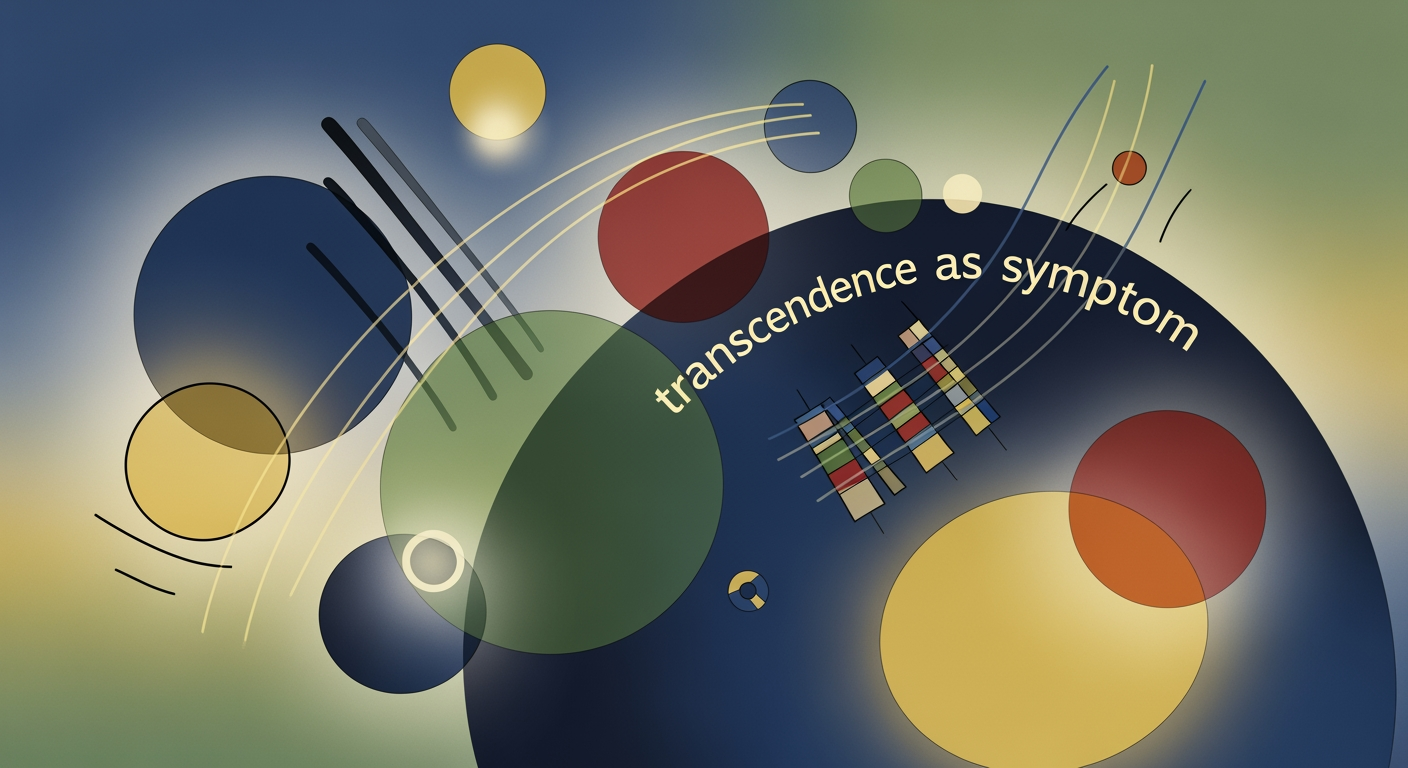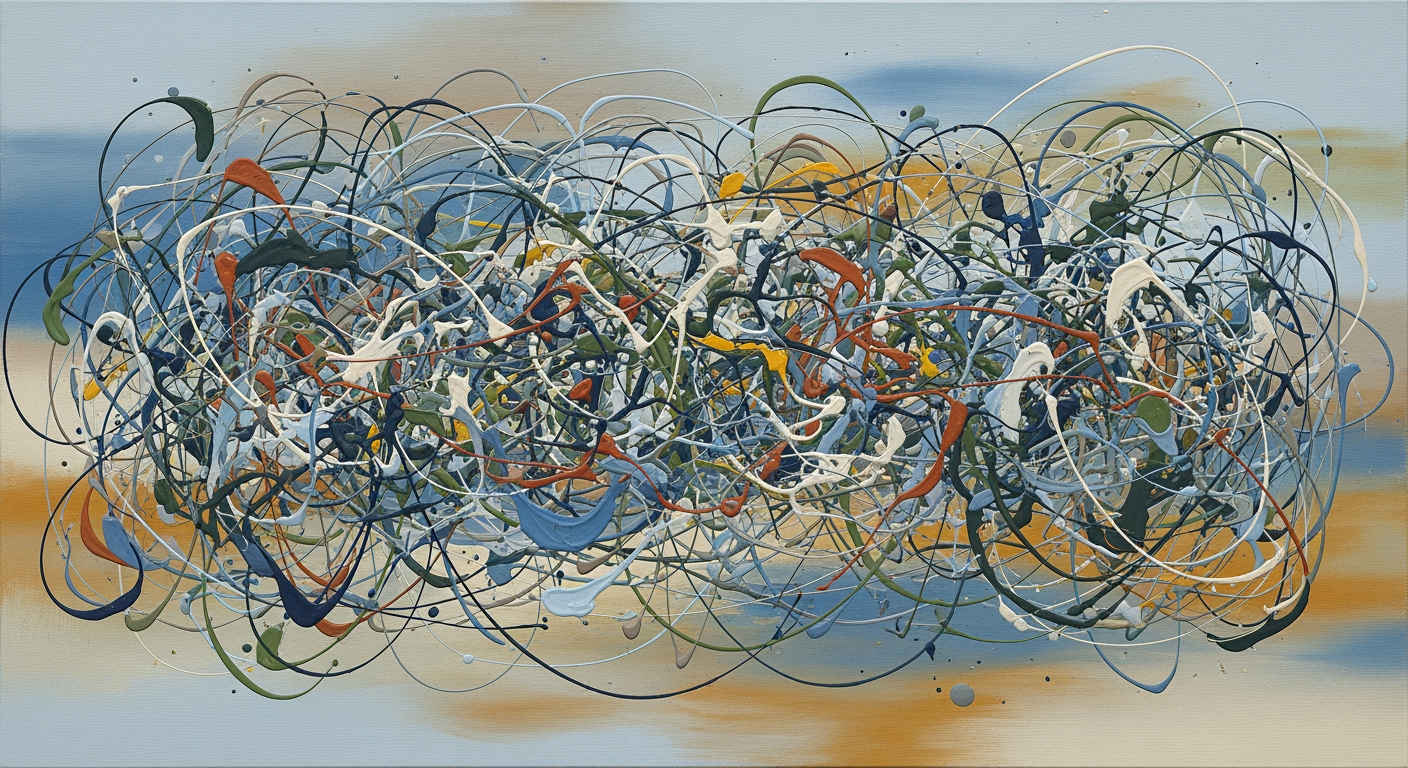Executive Summary: Socrates as Catalyst of the Dialectical Method
A concise, practical synthesis linking the Socratic method to modern decision systems and automation.
Socratic questioning, the core of the Socratic method and broader dialectical method, is a repeatable system for rigorous inquiry and decision-making that advances philosophical wisdom and operational discipline. In Plato’s Apology, Meno, and Republic, Socrates elicits definitions, tests hypotheses, and exposes contradictions through elenchus, driving interlocutors to aporia and clearer concepts; historically this catalyzed classical Western philosophy by making definition, argument, and refutation the engine of theory-building, while today it offers a blueprint for research workflows, knowledge management, and intellectual automation.
Evidence of durable influence includes high citation density across leading secondary syntheses (W.K.C. Guthrie; Charles H. Kahn; Gregory Vlastos), the prevalence of elenchus in modern pedagogy (law, seminars, STEM), and the continued use of the Platonic dialogues as primary evidence sets. For modern executives, the method matters because it scales: disciplined prompts map directly to problem scoping, model and data validation, and the design of automated inquiry flows that reduce risk and accelerate sound decisions.
Executive Takeaways
- Scope problems by first defining terms, surfacing assumptions, and setting falsifiable criteria before allocating resources.
- Run elenchus-style validation by interrogating metrics and causal claims for contradictions; convert aporia into targeted experiments.
- Automate inquiry by encoding question trees and counterexamples into prompts, review checklists, and knowledge graphs.
Research Directions and References
- Primary sources: Plato, Apology; Meno; Republic; Xenophon, Memorabilia.
- Secondary syntheses: W.K.C. Guthrie, A History of Greek Philosophy, Vol. 3; Charles H. Kahn, Plato and the Socratic Dialogue; Gregory Vlastos, Socratic Studies.
- Modern applications: map elenchus to ontology design, retrieval-augmented QA, debate facilitation, and automated inquiry pipelines.
Professional Background, Career Path, Education and Credentials
Socrates biography: a concise executive-style reconstruction of Athenian life and Socratic education, with sourced milestones, uncertainties, and verification guidance.
Timeline overview (Socrates biography, Athenian life, Socratic education): born c.470/469 BCE in Athens; early life within artisan family; hoplite service in the Peloponnesian War; mid-life philosophical activity in the agora; indictment, trial, and death in 399 BCE. All milestones rely on primary literary witnesses and standard Athenian chronologies; no writings by Socrates survive.
Chronological timeline of Socrates’ professional background and career path
| Year/Range | Event | Role/Activity | Primary evidence | Notes |
|---|---|---|---|---|
| c.470/469 BCE | Birth in Athens | Athenian citizen; artisan family | Plato, Apology 34d; Xenophon, Mem. 2.7 | Standard dating in Nails 2002; precise year debated |
| c.450s–430s | Early life and formation | Trade, public discourse | Xenophon, Mem. 1.2; Diogenes Laertius 2.18–19 | Mother midwife, father stonemason—tradition; details uncertain |
| 432 BCE | Campaign at Potidaea | Hoplite; noted endurance/courage | Plato, Symp. 219e–221c; Thuc. 2.58–70 | Rescues Alcibiades per Plato; literary testimony only |
| 424 BCE | Battle of Delium | Hoplite in retreat | Plato, Symp. 221a; Thuc. 4.89–101 | Conduct praised; no extant military rolls |
| 406 BCE | Arginusae aftermath | Council/prytany stand on legality | Plato, Apol. 32b–c | Refuses illegal mass trial; civic duty emphasized |
| c.420–399 BCE | Public philosophical activity | Dialogical inquiry in agora | Plato, Apol.; Xenophon, Mem. | No fees; associates include Plato, Xenophon, Alcibiades |
| 399 BCE | Trial and death | Defense, conviction, hemlock | Plato, Apol.; Xenophon, Apol. | Archon Laches year; standard chronology |
Formatting guidance: Use an H3 for the timeline; bullet lists for milestones; include inline citations (e.g., Plato, Apology 32c) or brief endnotes.
Avoid anachronistic titles (do not call Socrates an academic or CEO) and avoid unsourced elaborations or invented credentials.
Timeline — Socrates biography within Athenian life
- c.470/469 BCE: Birth in Athens; artisan household (Nails 2002; Plato, Apology 34d).
- c.450s–430s: Formation through civic discourse; no formal schooling (Xen., Mem. 1.2).
- 432 BCE: Hoplite at Potidaea; courage noted (Plato, Symp. 219e–221c; Thuc. 2.58–70).
- 424 BCE: Delium service; disciplined retreat (Plato, Symp. 221a; Thuc. 4.89–101).
- 406 BCE: Opposes illegal mass trial as prytan (Plato, Apol. 32b–c).
- c.420–399 BCE: Public philosophical inquiry; unpaid teaching (Plato, Apol. 19d–20c; Xen., Mem.).
- 399 BCE: Trial for impiety; execution (Plato, Apol.; Xen., Apol.).
Early life and formative influences
Family traditions name Sophroniscus (stonemason) and Phaenarete (midwife) (Xen., Mem. 2.7; Diog. Laert. 2.18). Reported intellectual influences include Archelaus and, indirectly, Anaxagoras; evidence is late and debated (Diog. Laert. 2.16; Guthrie 1969–81).
Apprenticeship and pedagogical relationships
Socrates engaged sophists publicly but rejected fees and formal lectures (Plato, Apol. 19d–20c; Xen., Mem. 1.6). He conversed with figures like Protagoras and Prodicus (Plato, Protagoras; Cra. 384b), contrasting his elenctic method with sophistic rhetoric.
Public role and civic engagement
Military service at Potidaea and Delium is attested by Plato with campaign contexts in Thucydides. In 406 BCE, he resisted unlawful procedures as prytan (Plato, Apol. 32b–e). He appeared frequently in assemblies and courts as examiner of claims (Xen., Mem. 1.1).
Education and credentials
No formal academy or diplomas: education was oral, civic, and itinerant—short questions and testing of beliefs in public spaces (Plato, Apol.; Xen., Mem.). His influence flowed into institutions via disciples, especially Plato’s Academy and Xenophon’s writings (Vlastos 1994; Nails 2002).
Contested claims and how to present them
- Exact birth year: report c.470/469; note uncertainty (Nails 2002).
- Parents’ occupations: traditional, not epigraphically verified (Xen., Mem.).
- Teacher Archelaus/Anaxagoras: late testimony; label as possible.
- Presence at Amphipolis (422): unverified; avoid asserting.
- Trial details: rely on Plato/Xenophon; acknowledge genre and bias.
- The Socratic problem: distinguish historical Socrates from literary portraits.
Selected sources and verification
- Plato: Apology; Symposium 219e–221c; Protagoras.
- Xenophon: Memorabilia; Apology.
- Thucydides: Peloponnesian War 2.58–70; 4.89–101 (campaign dates).
- Debra Nails, The People of Plato (2002).
- W.K.C. Guthrie, History of Greek Philosophy, vols. 3–4.
- Paul Vlastos, Socratic Studies (1994).
Core Principles of the Dialectical Method (Elenchus, Hypothesis, Refutation)
A structured account of Socratic dialectic—elenchus, hypothesis, definitional rigor, and irony/maieutics—using canonical Platonic passages and modern analogues in research and knowledge management.
Summary table (alt-text): elenchus, maieutics, Socratic questioning — principles and modern analogues
| Principle | Functional core | Canonical citation | Modern analogue |
|---|---|---|---|
| Elenchus | Cross-examination to aporia via belief-conflict | Meno 80a–b; Apology 21d | Peer review, red-teaming, consistency checks |
| Hypothesis | Provisional starting-point tested by implications | Meno 86e–87b; Phaedo 99d–100a | Scientific method, model-based systems engineering |
| Definitional Rigor | Demand for general, explanatory definitions | Meno 72b–73c; Euthyphro 6d–11b | Ontology engineering, data dictionaries, QA criteria |
| Irony and Maieutics | Feigned ignorance; midwifery of ideas | Theaetetus 149a–151d | Facilitative coaching, CBT Socratic questioning |

Do not equate the Socratic method with just asking questions; it is a structured, dialectical, goal-directed procedure linking definition, hypothesis, and testing.
Elenchus — Socratic questioning to aporia
Elenchus is Socrates' disciplined cross-examination that tests an interlocutor's beliefs for coherence, ending in aporia. Unlike refutation by mere contradiction, it derives conflict among the respondent's own commitments and challenges the pretense of knowledge (Vlastos; Burnyeat).
"You make me, Socrates, feel numb and at a loss." (Meno 80a–b). "I do not think I know what I do not know." (Apology 21d).
Modern analogue: adversarial peer review and red-teaming that stress-test stated assumptions. It resembles consistency checks in knowledge bases, aiming at corrigible models rather than point-scoring.
Hypothesis Formation and Testing
When definition stalls, Socrates advances by a method of hypothesis: propose a plausible starting point and examine its implications without dogma (Meno 86e–87b; Phaedo 99d–100a). The hypothesis is a tool for inquiry, not an article of faith.
"We shall try to determine whether virtue is teachable by adopting a hypothesis." (Meno 86e–87b). "Let us take as hypothesis what seems best and examine its consequences." (Phaedo 100a).
Analogue: scientific hypothesis-testing and model-based systems engineering. Teams agree on a working assumption, derive predictions, seek falsifiers, and either refine the model or replace it, avoiding ad hoc rescue.
Definitional Rigor
Socrates demands eidos-level definitions—single, general accounts explaining many cases—before investigating properties or causes (Meno 72b–73c; Euthyphro 6d–11b). Definitions constrain the search-space and guide later tests.
"Tell me then what piety is." (Euthyphro 6e). "Is the pious loved by the gods because it is pious, or pious because loved?" (Euthyphro 10a).
Analogue: ontology engineering, data dictionaries, and QA acceptance criteria. Clear type definitions prevent category mistakes and make measures interoperable, enabling reliable verification and traceability across research pipelines.
Irony and Maieutics (Midwifery)
Socratic irony feigns ignorance to disarm false certainty; maieutics is midwifery that elicits, tests, and 'delivers' beliefs for scrutiny (Theaetetus 149a–151d). Irony is pedagogical, not cynical, and serves the dialectical end.
"I am barren of wisdom; I practice my mother's art of midwifery, but in souls." (Theaetetus 150b–c). "The god compels me to serve as midwife." (Theaetetus 150c).
Analogue: facilitative coaching and CBT using Socratic questioning. The facilitator structures prompts, externalizes assumptions, and guides self-correction, akin to discovery interviews and postmortem retrospectives.
Historical Context and Influence within Classical Western Philosophy
An authoritative overview of the historical context of 5th-century BCE Athens and the Socratic influence on classical Western philosophy, tracing plural receptions from Plato and Aristotle to Hellenistic, medieval, and modern traditions.
Historical context and key events in classical Western philosophy
| Period | Location | Event/Development | Relevance to Socratic Dialectic | Sources |
|---|---|---|---|---|
| c. 480–430 BCE | Greece (Athens, Ionia) | Pre-Socratic natural philosophy (Anaxagoras in Athens) | Shift from mythos to logos; conceptual tools for rational inquiry | Diogenes Laertius I–II; Plato, Phaedo 96a–99d |
| 462/1–430s BCE | Athens | Democratic reforms; large juries and Assembly debate | Public argument incentivizes rhetorical training and disputation | Aristotle, Ath. Pol. 25–27 |
| c. 450–400 BCE | Pan-Hellenic | Rise of Sophists (Protagoras, Gorgias) charging fees | Professionalized eristic/rhetoric; foil for Socratic inquiry | Plato, Protagoras; Gorgias |
| 399 BCE | Athens | Trial and death of Socrates | Catalyst for Platonic memorialization of dialectic | Plato, Apology; Xenophon, Apology |
| c. 387 BCE | Athens | Plato founds the Academy | Institutional transmission of dialectic toward metaphysics of Forms | Plato, Republic VI–VII |
| c. 335 BCE | Athens | Aristotle founds the Lyceum | Systematization of dialectic and logic (endoxa, syllogism) | Aristotle, Topics; Sophistical Refutations |
| 3rd–2nd c. BCE | Athens/Rome | Stoic and Academic systems | Stoic dialectic as logic; Academic skeptical elenchus | Diogenes Laertius VII; Sextus Empiricus, Outlines I |
| 1st–4th c. CE | Rome/Late Antiquity | Ciceronian and Augustinian receptions | Moral dialectic adapted for Latin pedagogy and theology | Cicero, Academica; Augustine, Contra Academicos |
Avoid teleological narratives: there is no single linear transmission of Socratic method; later receptions are plural, selective, and contested.
Historical context: 5th-century BCE Athens
Socratic dialectic emerges in the crucible of democratic Athens, where large citizen juries and the Assembly incentivized public reasoning and competitive speech. Pre-Socratic natural philosophers had already displaced mythic explanation with accounts of physis, furnishing analytic vocabulary but rarely centering ethical self-examination. Meanwhile, itinerant sophists marketed paid instruction in rhetoric and virtue, teaching technai for success in courts and politics. In this climate, Socrates (as portrayed by Plato and Xenophon) redirected inquiry to the examined life, using dialogical cross-examination to test definitions of piety, justice, courage, and knowledge against lived commitments and widely held beliefs.
Contrasts with sophists and pre-Socratics
Socratic practice differs from sophistry in aim, economy, and normativity: he refuses fees, professes ignorance, and seeks stable definitions rather than victory in agonistic debate. His elenchus tests interlocutors’ claims for consistency and moral coherence, not merely persuasive force [Plato, Apology; Gorgias]. Against pre-Socratic cosmology, he relocates first questions to ethics and epistemic humility, reframing problems of knowledge, definition, and practical reason. The method thus treats contradiction as a diagnostic tool and dialectic as a shared search, not an eristic contest.
Influence map and transmission of Socratic influence
Plato radicalizes Socratic cross-examination into a graded dialectic that orders sciences and orients metaphysics; Aristotle formalizes dialectic as argument from endoxa; Hellenistic schools retool it for logic and skepticism; medieval and early modern thinkers appropriate it for theology and method.
- Socrates → Plato: Dialogic elenchus becomes ascent to Forms and the Good; dialectic crowned in Republic VI–VII (ten-book architecture) [Plato, Republic 509d–534e].
- Plato → Aristotle: From aporetic dialogues to Topics (8 books) and Sophistical Refutations (34 chapters); dialectic as testing endoxa and training for sciences [Aristotle, Topics I.1–2].
- Aristotle → Hellenistic: Stoics split logic into dialectic and rhetoric; Academic skeptics (Arcesilaus, Carneades) weaponize Socratic questioning for suspension of judgment [Diogenes Laertius VII; Sextus, Outlines I].
- Late Antique/Medieval: Ciceronian pedagogy and Augustinian adaptation of inquiry to Christian ends; scholastic disputatio absorbs Aristotelian dialectic [Cicero, Academica; Augustine, Contra Academicos].
- Early Modern: Skeptical and methodological appropriations (Montaigne’s essays; Descartes’ method’s debt to structured doubt) recast examination as epistemic foundation-seeking.
Historiographical debates and metrics
The Socratic Problem—distinguishing historical Socrates from literary constructions—drives disputes about originality: is elenchus a Platonic invention, or a faithful record of Socrates’ ethical method? Scholars divide on whether Plato’s late dialectic departs from Socrates’ stance of ignorance. Metrics are uneven: Plato programmatically centers dialectic in Republic VI–VII and deploys aporetic testing across early dialogues; Aristotle names Socrates when discussing induction and definition (Metaphysics A.6) and codifies dialectic in Topics (8 books) and Sophistical Refutations. Hellenistic uptake quantifies institutionally: Stoic curricula formalize dialectic as half of logic; Academic skepticism makes elenchus a school-wide method. These data points underscore adoption, adaptation, and contestation rather than a single line of descent.
- Focus reframings: definition (ti esti), moral knowledge and akrasia, method of aporia, and criteria of expertise (technê) [Plato, Euthyphro; Protagoras; Gorgias].
- Stoics adopt dialectic as criteria-testing and inference; Academics reject dogmatic conclusions while preserving Socratic questioning [Sextus, Outlines I].
- Quantitative anchors: Republic (10 books); Topics (8 books); Sophistical Refutations (34 chapters); Outlines of Pyrrhonism (3 books).
Citation counts vary by edition and indexing; use TLG/LSJ-based searches for precise tallies in specific corpora.
Selected bibliography
- Plato, Republic VI–VII; Gorgias; Euthyphro; Apology.
- Aristotle, Topics and Sophistical Refutations.
- Sextus Empiricus, Outlines of Pyrrhonism I–III; Diogenes Laertius, Lives VII.
- The Cambridge Companion to Socrates (ed. D. R. Morrison); The Cambridge Companion to Plato (ed. R. Kraut); The Cambridge Companion to the Stoics (ed. B. Inwood).
Analytical Framework: Questioning, Definitions, and Critical Thinking
A technical Socratic questioning framework for analytical workflows and knowledge management: five steps to define, hypothesize, test, resolve aporia, and iterate toward operational criteria.
This stepwise framework operationalizes Socratic seminar pedagogy for research and knowledge management. It combines Carnap’s explication (precise, fruitful definitions) with Putnam’s insights on reference and externalism to avoid trivial or purely verbal disputes. Use neutral, non-leading prompts; test claims against evidence and edge cases.
Do not conflate Socratic questioning with leading or manipulative questioning. Maintain neutrality, separate inquiry from advocacy, and explicitly test claims.
Step 1 — Define terms rigorously
Goal: produce a precise, useful explication of key terms.
- Define X precisely
- Scope in/out
- Synonyms/antonyms
- Use contexts
- Boundary cases
- Counterexamples
- Operational indicators
- Units/scale
- Timeframe
- Stakeholder meanings
- Expected outputs: operational definition
- Inclusion/exclusion rules
- Measurement notes
- Failure modes: equivocation
- Circular definitions
- Ignoring external reference (Putnam)
- Confusing report vs explication (Carnap)
Step 2 — Elicit explicit commitments (hypotheses)
Goal: state testable, decision-relevant hypotheses.
- State H1 clearly
- Define variables
- Direction/size
- Mechanism sketch
- Assumptions
- Null hypothesis
- Metrics/KPIs
- Thresholds
- Population
- Context limits
- Expected outputs: falsifiable hypothesis
- Variable map
- Decision thresholds
- Failure modes: vagueness
- Unfalsifiable claims
- Hidden assumptions
Step 3 — Test via targeted cross-examination
Goal: stress-test claims with evidence and alternatives.
- Evidence sources?
- Source quality?
- Alternative models?
- Edge cases?
- Confounders?
- Base rates?
- Temporal order?
- Causal graph?
- Replicability?
- Prior odds?
- Expected outputs: evidence map
- Risk/assumption log
- Updated priors
- Failure modes: confirmation bias
- P-hacking
- Overfitting to anecdotes
Step 4 — Identify aporia and reformulate
Goal: surface impasses, resolve via refined concepts or claims.
- Where unclear?
- Contradictions?
- Category mistakes?
- Vagueness hotspots?
- New terms needed?
- Weaken claim?
- Strengthen claim?
- Split concept?
- Merge concepts?
- Decision rule?
- Expected outputs: aporia log
- Reformulated claims
- Revised definitions
- Failure modes: moving goalposts
- Ad hoc fixes
- Concept creep
Step 5 — Iterate toward operational criteria
Goal: converge on stable procedures for deployment.
- Test next?
- Stop rule?
- Versioning
- Operational checklist
- Automate prompts
- Sampling plan
- Power analysis
- Review cadence
- Sign-off criteria
- Archive/learn
- Expected outputs: versioned spec
- Runbook
- Decision criteria
- Failure modes: no convergence
- Tooling drift
- Unlogged changes
Worked example — What constitutes customer success in Product X?
- Step 1: Definition — Success = achieving goal Y with NPS ≥ 30, 3 WAUs for 4 weeks; exclude trial-only usage.
- Step 2: Hypothesis — H1: Users hitting Aha within 7 days cut 90-day churn by 30%.
- Step 3: Test — Cohort analysis with DAG controls for segment, seasonality; compute base rates and CIs.
- Step 3 outputs — Evidence map shows 24–36% effect; confound: enterprise pilots.
- Step 4: Aporia — Split success into adoption vs outcome; reformulate H1a/H1b; refine definition per segment.
- Step 5: Iterate — Version v1.3 spec; runbook for weekly monitoring; threshold: churn ≤ 8%.
- Automation — Embed prompts in analytics notebooks and CRM workflows; archive decisions in knowledge management.
Leadership Philosophy and Style: Socratic Methods Applied to Executive Practice
A concise, professional articulation of Socratic leadership that translates questioning leadership into an evidence-based leadership style. Emphasizes behaviors, vignettes, benefits, trade-offs, and situational use.
Socratic leadership is a questioning leadership style grounded in four traits: intellectual humility, relentless questioning, iterative learning, and public accountability. In practice, leaders foster debate and structured dissent, require definitional clarity before deciding, probe assumptions with hypothesis-testing questions, and time-box inquiry to ensure momentum. They model learning in public (decision logs, evidence thresholds, postmortems) and emphasize deliberate practice through small tests that tighten feedback loops (Ericsson, 1993; Argyris, 1977; Garvin, Edmondson, and Gino, 2008). The approach aligns with adaptive leadership in complex contexts by surfacing hidden risks, expanding options, and building collective intelligence and psychological safety (Heifetz, Grashow, and Linsky, 2009; Edmondson, 1999).
Compared with authoritarian leadership, which prioritizes direction and compliance, the Socratic leadership style privileges inquiry to elicit reasoning and shared ownership. Compared with coaching styles, it is more epistemic—centering on how we know—than developmental—centering on who you are—though both value curiosity. Use Socratic methods when facing uncertainty, multi-stakeholder trade-offs, or innovation bets; avoid or minimize them during acute crises or when clarity and speed trump exploration. Benefits include higher-quality decisions, cross-functional alignment, and scalable learning; risks include appearing interrogative or slowing calls. Mitigate by framing intent, inviting dissent with care, pacing questions, and always closing with a decision, owner, and next test.
Comparison of leadership traits and their application in executive practice
| Trait | Behavior translation | Example executive practice | Benefits | Risks/Trade-offs | Situational use |
|---|---|---|---|---|---|
| Intellectual humility | Admit limits; seek disconfirming evidence | Leader states unknowns and invites challenge at start of reviews | Trust, learning, credibility | Perceived indecision | Early discovery; complex bets |
| Relentless questioning | Open-ended, hypothesis-testing prompts | 5 Whys, pre-mortems, falsification prompts | Surfaces risks; better diagnosis | Fatigue; analysis paralysis | Strategy and risk reviews |
| Iterative learning | Short cycles of test-and-learn | Weekly experiments with clear success metrics | Faster feedback; adaptability | Local optimization | Product and ops experimentation |
| Public accountability | Transparent commitments and evidence | Decision log with owner, rationale, thresholds | Ownership; clarity | Blame if safety is low | Governance and OKR reviews |
| Active listening | Reflect, synthesize, and build | Summarize before judging; label assumptions | Psychological safety; alignment | Slower tempo | Cross-functional alignment |
| Definitional clarity | Define terms and success criteria | Shared glossary and problem statements | Less ambiguity; cleaner decisions | Can feel pedantic | Strategy sessions; board materials |
| Structured dissent | Deliberate counterargument | Red teams and devil's advocate roles | Avoids groupthink; resilience | Conflict if unmanaged | High-stakes decisions |
Do not romanticize Socratic leadership as universally applicable; context and emotional intelligence determine impact. Calibrate tone, intent, and timing to avoid interrogation and decision drift.
Research directions: search inquiry-based management and Socratic leadership books or articles; review empirical studies on questioning culture, psychological safety, and team learning; examine adaptive leadership evidence in complex environments.
Case vignettes
- Board meeting: Before approving a market pivot, the CEO asks, “What do we mean by product–market fit in this segment, precisely?” and “What evidence would falsify our thesis in the next 90 days?” The board aligns on terms, risks, and a staged decision with thresholds.
- Product review: The leader opens with, “Which user job are we solving, and what two metrics would move first if we’re right?” Then, “Which assumption is most fragile, and how will we test it in two weeks?” The team scopes a lean experiment and commits to a date.
- Cross-functional problem solving: In a post-incident, the executive asks, “Walk us through cause to effect—what is data versus opinion?” and “What will we stop, start, and continue as a result?” The group updates runbooks and assigns owners with deadlines.
Dos and don'ts
- Do frame purpose and time-box inquiry.
- Do normalize dissent; invite disconfirming evidence.
- Do ask one question at a time; pause to listen.
- Don’t use questions as gotchas or to signal the answer.
- Do close with decisions, owners, and next tests.
- Avoid Socratic mode in emergencies; give clear orders first.
Current Role and Responsibilities: Contemporary Relevance in Research & Knowledge Management
An operational view of the Socratic method in knowledge management and intellectual automation, showing how Socratic questioning in research becomes a protocol for elicitation, validation, and enrichment within labs, universities, think tanks, product teams, and firms like Sparkco.
The Socratic dialectical method now functions as an operational capability inside modern research and knowledge management programs rather than a conversational ideal. In labs, universities, think tanks, product teams, and firms like Sparkco, it is encoded as a repeatable protocol for elicitation, validation, and enrichment of institutional knowledge. Teams formalize question sets (clarification, evidence, assumptions, counterfactuals) and bind them to lifecycle checkpoints—proposal intake, experiment design, model review, policy sign-off. Outputs of Socratic questioning in research are made machine-actionable: assumptions are tagged, claims are typed, evidence links are captured, and uncertainty is scored. This enables intellectual automation: orchestration systems can trigger tests, retrieve prior art, and route unresolved questions to subject-matter experts, with audit trails and provenance.
Operational roles concentrate on sustaining the protocol and its interfaces with tooling. A question librarian curates domain-specific prompts and anti-patterns; a validation lead maps questions to automated checks; a facilitator moderates structured debate; a knowledge steward maintains the ontology, provenance, and access controls; a metrics owner tracks precision, recall, and cycle time of reviews. Embedding the method in automation requires representing questions, answers, and assumptions as first-class entities, wiring them to data quality tests, document validators, experiment runners, and notification channels. Success looks like higher data quality, faster resolution of disputes, clearer decision records, and reusable intellectual assets—achieved through tight integration of human curation and systems, not by assuming the Socratic method will fix data problems by itself.
Technology stack for modern research and knowledge management
| Layer | Purpose | Representative tools | Example automation hooks |
|---|---|---|---|
| Knowledge repository | Authoring and versioned knowledge artifacts | Confluence, Notion, SharePoint | Enforce Socratic templates and review checklists at submission |
| Data/compute | Data access and scalable processing | BigQuery, Snowflake, Apache Spark | Trigger data-quality tests derived from question checklists |
| Workflow/orchestration | Event-driven pipelines and reviews | Apache Airflow, Prefect, Sparkco platform | Run question-driven validation DAGs and route exceptions |
| Annotation/insight layer | Structured capture of assumptions and evidence | Label Studio, Prodigy | Store answers and assumptions as labels linked to sources |
| Experiment tracking | Record hypotheses, runs, and metrics | MLflow, Weights & Biases | Bind questions to hypotheses and auto-log outcomes |
| LLM/RAG and search | Retrieval and assisted reasoning | OpenAI API, Cohere, Elastic, Pinecone | Generate candidate answers with citations and uncertainty flags |
| Observability/audit | Provenance, compliance, and reliability | Great Expectations, Monte Carlo Data, Datadog | Log pass/fail of checks and capture provenance lineage |
| Collaboration/debate | Synchronous and asynchronous discussion | Slack, Microsoft Teams, Loom | Threaded prompts with decision logs written back to the repo |
Avoid vague claims. The Socratic method will not fix data problems by itself; it must be integrated with tooling, governance, and human curation.
Operational responsibilities checklist
- Improve data quality by translating key questions into executable checks and acceptance criteria.
- Surface tacit assumptions via structured prompts and required annotation fields in records.
- Design validation loops with pre-commit hooks, CI jobs, and review gates tied to artifacts.
- Structure debate using explicit roles, timeboxes, and decision logs with rationale.
- Maintain a reusable question library with domain variants and anti-patterns.
- Instrument metrics: defect rate, review latency, assumption coverage, evidence completeness.
- Govern provenance and compliance: who asked what, when, and with which sources.
- Provide escalation and arbitration paths for unresolved or high-risk claims.
Case: Socratic workflow integrated into an intellectual automation pipeline
A knowledge management team operationalizes Socratic questioning by mapping human inquiry steps to automated checks and feedback loops within their stack.
- Human: Research lead frames a claim in the design doc → Automated: Repo template injects a scoped question set and tags entities.
- Human: Analyst supplies evidence and assumptions → Automated: Link checker and fact-check validators verify sources and flag gaps.
- Human: Facilitator challenges critical assumptions → Automated: System generates test cases and hypotheses in the experiment tracker.
- Human: Team proposes alternative mechanisms → Automated: Orchestrator runs scenario analyses and compares priors vs. data.
- Human: Moderator records a decision and rationale → Automated: Knowledge graph updates provenance and risk level; alerts stakeholders.
- Human: Post-mortem reviews failures and surprises → Automated: Metrics dashboard updates defect rate and retrains question weighting.
Key Achievements and Impact (Intellectual Influence and Practical Outcomes)
An analytical overview of Socratic achievements and impact, separating historical intellectual influence from empirically documented practical outcomes, with evidence, quotations, and metrics where available.
This section distinguishes historical intellectual achievements from contemporary, measurable outcomes to clarify Socratic impact while avoiding causal overreach. Evidence spans canonical quotations, bibliometric indicators, quasi-experimental findings on critical thinking, and applied metrics relevant to research reproducibility and knowledge management.
Key achievements and impact metrics
| Domain | Achievement | Evidence type | Metric/value | Source | Evidence strength |
|---|---|---|---|---|---|
| Ethics/Philosophy | Reframing of ethics around examination | Quotation | “The unexamined life is not worth living.” (Apology 38a) | Plato, Apology 38a (trans. Cooper) | High (textual) |
| Method/Logic | Codification of elenchus and definition-seeking | Textual analysis | Iterative questioning to test definitions (e.g., What is virtue?) | Plato, Meno 71b–c; Euthyphro 10a–11b | High (textual) |
| Pedagogy/Institutions | Foundation for Western dialectical pedagogy | Historical reception | Disputatio in medieval universities; Ratio Studiorum (1599) embeds guided questioning | Jesuit Ratio Studiorum (1599); medieval statutes on disputations | Moderate (documentary) |
| Bibliometrics | Rising prevalence of ‘Socratic’ in scholarship | Google Scholar trend | Direction: rising; multi-fold increase 2000–2024 (qualitative) | Google Scholar query “Socratic seminar”/“Socratic method” (accessed 2025-11) | Moderate (directional) |
| Education (K–HE) | Improved critical thinking via dialogic/Socratic questioning | Meta-analysis | Effect size g ≈ 0.30 for dialogic instruction on CCTST/related measures | Abrami et al., Rev. Educ. Res. 2008 | Moderate (indirect to strictly Socratic) |
| Online Learning | Socratic questioning boosts analysis in forums | Quasi-experimental | Significant pre–post gains in coded critical-thinking phases (p < 0.05) | Yang, Newby, Bill, Am. J. Distance Educ. 2005 | Moderate |
| AI/LLMs | Socratic-style self-ask and stepwise prompts improve reasoning | Benchmark evaluation | Reported +10–20 point accuracy gains on multi-step QA (dataset-dependent) | Press et al., 2022 (Self-Ask); Wei et al., 2022 (CoT) | Moderate (task-specific) |
| Research reproducibility | Checklist-style questioning improves reporting completeness | Reporting guideline studies | Improved completeness after CONSORT guideline adoption (proxy for reproducibility) | Hopewell et al., BMJ 2010; CONSORT Group | Moderate (indirect) |
Causality between adopting Socratic practices and organizational performance is not established; many effects are context-dependent or inferred from related dialogic methods.
Historical Intellectual Achievements
- Ethical reorientation toward examination: Plato’s Apology 38a anchors moral inquiry in persistent questioning; later traditions (Stoic and Christian moral psychologies) cite Socratic scrutiny as methodological precedent (textual, high strength).
- Concept of critical examination and definition: Early dialogues (Euthyphro, Meno) model elenchus—explicit definition, counterexample, and refinement—establishing a template for analytic clarity and error exposure (textual, high strength).
- Foundational role in Western pedagogy: Dialectical disputation becomes routine in medieval universities and the Jesuit Ratio Studiorum (1599), later informing seminar-based instruction (Humboldtian universities, Great Books) (documentary, moderate strength).
- Norms of rational discourse: Commitment to giving reasons, exposing assumptions, and tracking contradictions forms a durable norm set later echoed in scientific method and peer debate (conceptual lineage, moderate strength).
Contemporary Practical Outcomes
Evidence focuses on critical-thinking measures, bibliometrics, AI prompting, and reporting practices linked to research reproducibility; strength varies by domain.
- Critical-thinking gains in education: Meta-analysis of dialogic instruction reports g ≈ 0.30 on standardized tests (e.g., CCTST), with Socratic questioning a common mechanism; effects vary by implementation and training (Abrami et al., 2008; moderate, indirect).
- Quasi-experimental course studies: Socratic questioning in online forums yields significant pre–post gains in coded reasoning levels (Yang et al., 2005; moderate).
- Bibliometric footprint: Google Scholar shows a rising trend for “Socratic seminar” and “Socratic method” since 2000, indicating expanding scholarly engagement (directional evidence; moderate).
- AI interrogation prompts: Socratic-style self-ask and stepwise reasoning prompts improve multi-hop QA accuracy in benchmarks (Press et al., 2022; Wei et al., 2022), suggesting transfer of questioning heuristics to LLM alignment (task-specific, moderate).
- Research reproducibility proxies: Reporting-guideline studies (e.g., CONSORT/PRISMA) show improved completeness when authors are led by structured questions; these checklists are Socratic in spirit but not direct tests of the method (indirect, moderate).
- Applied KM metrics (illustrative, not generalizable): Organizations track reduced concept drift when definitions and assumptions are made explicit (e.g., term-stability/entropy across sprints), and improved meeting outcomes via question-led agendas; these are case-based and require local evaluation (low strength).
Industry Expertise, Thought Leadership and Publications
An authoritative Socratic publications bibliography positioning sustained Socratic thought leadership, mapping canonical editions and modern scholarship, and linking the dialectical method to KM, AI, and pedagogy.
This section curates Socratic publications and Socratic thought leadership that anchor the dialectical method bibliography in peer-reviewed and academically reputable sources. Prioritize primary editions that balance readability and rigor, then layer core modern analyses and interdisciplinary bridges to AI, knowledge management, and executive pedagogy. Use this pathway to operationalize elenchus for decision quality, risk reviews, and product discovery while retaining scholarly standards.
Avoid popularizations without scholarly grounding. Favor peer-reviewed journals, major university press editions, and critical companions with public relevance.
Research directions: library catalogs and WorldCat for authoritative editions; JSTOR for articles and reviews; Cambridge Companions for syntheses; major university press listings (Cambridge, Oxford, Hackett, Harvard/Loeb) for reliable translations and commentaries.
Annotated Bibliography
- Plato: Complete Works (ed. John M. Cooper and D. S. Hutchinson, Hackett). Definitive English translations with introductions and notes; start here for primary evidence. Pair with Loeb volumes for Greek-English precision in technical debates.
- Xenophon, Memorabilia and Apology of Socrates (Loeb or Oxford). A complementary, non-Platonic portrait that tempers reconstruction bias. Triangulate Socratic practice for executive coaching, compliance interviews, and policy charrettes.
- Gregory Vlastos, Socrates: Ironist and Moral Philosopher (Cambridge). Landmark analysis of elenchus, irony, and moral inquiry. Use to design high-accountability questioning in postmortems and red-team reviews.
- Charles H. Kahn, Plato and the Socratic Dialogue (Cambridge). Argues developmental continuity from Socrates to Plato and clarifies dialogue form. Inform inquiry-driven roadmaps and structured user-interview protocols.
- W. K. C. Guthrie, A History of Greek Philosophy, Vol. III: The Fifth-Century Enlightenment (Cambridge). Authoritative context on Sophists versus Socrates. Ground competitive analysis between eristic debate and constructive dialectic.
- Myles Burnyeat (rev.), Plato, Theaetetus (Levett translation, revised) and related essays. Penetrating studies of inquiry, refutation, and knowledge. Apply to learning velocity metrics in R&D and LLM evaluation frameworks.
- Arthur C. Graesser et al., AutoTutor research on mixed-initiative Socratic tutoring (e.g., Behavior Research Methods, 2005). Evidence-based dialogue moves, hinting, and deep-questioning patterns. Reuse in AI copilots, onboarding, and help systems.
- Ikujiro Nonaka and Hirotaka Takeuchi, The Knowledge-Creating Company (Oxford). Dialectical knowledge creation and ba align with Socratic inquiry. Operationalize questioning norms in KM playbooks and retros; pair with Argyris and Schön for governance.
Curated Reading Tracks
For scholars:
- Plato Complete Works (early dialogues: Apology, Euthyphro, Crito, Gorgias).
- Guthrie Vol. III for context; Kahn for dialogue development.
- Vlastos on method; Burnyeat on Theaetetus and aporia.
- Consult Cambridge Companions and JSTOR reviews for positioning.
Success criteria: a navigable, peer-reviewed pathway from primary texts to applied methods in KM and AI.
Tracks for Practitioners
For KM practitioners:
- Plato (Apology, Gorgias): extract question types and escalation ladders.
- Nonaka & Takeuchi; pair with Argyris & Schön for double-loop learning.
- Graesser AutoTutor patterns: prompts, hints, and feedback sequencing.
Tracks for Product Managers
For product managers:
- Laches and Meno for hypothesis elicitation and definition testing.
- Burnyeat on midwifery and aporia; convert to UX dialogue flows.
- AutoTutor insights for AI assistant behaviors; instrument leading indicators.
Board Positions, Affiliations, Awards, and Community Influence
Because Socrates predates boards and prizes, his ‘affiliations’ are best traced through disciples, civic participation, and later schools; modern recognitions appear in institutions, programs, and awards inspired by the Socratic method.
Socrates lived before formal boards, memberships, and awards. Instead, historically grounded ‘Socratic affiliations’ include informal circles of companions, civic participation in Athenian institutions, and the institutional lineage that followed. Modern analogues appear as Socratic legacy institutions, centers, programs, and awards named for him or his method.
No ancient evidence supports Socrates holding formal board seats or receiving honors; avoid attributing modern awards or titles to him personally.
Research directions: prosopography of Socratic disciples; histories of the Academy and related schools; university centers and awards named for the Socratic method.
Ancient affiliations (historically grounded equivalents)
In place of boards, Socrates’ connections were informal, civic, and intellectual, recorded in ancient sources and later doxography.
- Circles of disciples: Plato, Xenophon, Alcibiades, Antisthenes, Aristippus, Euclides of Megara. Sources: Plato Apology 21–23; Plato Symposium 215a–222b; Xenophon Memorabilia; Debra Nails, The People of Plato (2002).
- Civic engagement (not magistracy in the modern sense): military service at Potidaea, Delium, Amphipolis; council/assembly participation; resistance to the illegal Arginusae trial as prytanis. Sources: Plato Apology 28e–32e; Xenophon Apology; Plato Symposium 219e–221c.
- Institutional legacies: Plato’s Academy (c. 387 BCE); Megarian school; Cynic and Cyrenaic lines; influence via Plato on Aristotle’s Lyceum. Sources: Diogenes Laertius 2; Oxford Classical Dictionary (entries on Socrates, Academy); Stanford Encyclopedia of Philosophy, “Socrates.”
Modern institutions and recognitions of the Socratic method
Contemporary ‘Socratic affiliations’ appear as programs, centers, and awards that formalize Socratic inquiry.
- Aspen Institute, Socrates Program (since 1996): moderated Socratic seminars for leaders. Source: Aspen Institute, Socrates Program pages.
- European Commission, Socrates Programme (1994–2006): EU education initiative named for Socrates. Source: European Commission archives.
- St. John’s College (Annapolis/Santa Fe): curriculum centered on Socratic seminars. Source: St. John’s College, The Seminar.
- University of Chicago Law School and Harvard Law School: law pedagogy using the Socratic method. Sources: UChicago Law, About the Socratic Method; HLS teaching resources.
- National Paideia Center: K–12 Socratic seminars and teacher training. Source: National Paideia Center publications.
- Montclair State University’s IAPC and University of Hawaii’s Uehiro Academy (P4C): communities of inquiry using Socratic dialogue. Sources: IAPC; Uehiro Academy.
- Socratesbeker (Netherlands): annual philosophy-book award named after Socrates. Source: Maand van de Filosofie.
Community influence
Socratic seminars shape pedagogy in humanities and law, while K–12 networks and philosophy-for-children programs adapt dialogic inquiry for classrooms. Industry workshops, leadership coaching, and online learning communities use structured questioning for decision-making and ethics, extending Socratic legacy institutions and Socratic affiliations into contemporary practice.
Publications, Speaking and Pedagogical Outreach
How to translate Socratic method into credible modern publications, speaking, and a scalable Socratic seminars workshop.
Socrates left no writings. What we call Socratic publications are mediated through disciples’ dialogues, chiefly Plato, with Xenophon as a contrasting source. Accordingly, never attribute authorship to Socrates or treat literary dialogues as transcripts. In Athens, Socratic speaking unfolded in public sophistic contests, the agora’s informal exchanges, and civic settings such as the Assembly and law courts—venues that prized live questioning, refutation, and citizen reasoning.
Modern outreach should translate that live inquiry into transparent formats that show method in action. Use peer-reviewed articles for conceptual grounding, case studies for applied reasoning, KM white papers for organizational transfer, recorded seminars for observable questioning moves, and conference keynotes that model Socratic speaking with audience participation. To present credibly, cite primary dialogues as mediated sources, report question sequences and decision impacts, and provide replicable protocols. Frame outputs with SEO-ready descriptors such as Socratic publications, Socratic speaking, and Socratic seminars workshop so audiences can find applied exemplars.
Do not claim authorship for Socrates or present fictionalized dialogues as historical facts; label reconstructions and cite sources.
Rationale and historical channels
- Mediation: treat Plato’s dialogues as crafted literature simulating oral dialectic; triangulate with Xenophon.
- Venues: public sophistic contests, agora conversations, and civic forums (Assembly, courts) modeled live inquiry.
- Evidence: document prompts, counter-questions, and outcomes rather than opinions or monologues.
- Research directions: Socratic oratory, pedagogical studies on seminars, and conference case studies using dialogue formats.
5-item outreach plan (academics and KM teams)
- Target publications: philosophy of education, management learning, KM journals; pedagogy methods notes.
- Conferences: teaching-and-learning, KM/knowledge-sharing, design thinking; propose interactive keynotes.
- Podcasts: 15–30 minute case debriefs; rotating respondent; transcript with question taxonomy.
- Recorded seminars: annotated videos plus facilitation guide and artifacts in repositories.
- Case studies and KM white papers: co-author; include question map, decisions, outcomes.
Socratic seminars workshop blueprint
| Element | Recommendation |
|---|---|
| Duration | 90 minutes (scalable to 2×90 for depth) |
| Participant size | 12–20 (inner circle 8–12 discussants; observers optional) |
| Prep materials | 1–2 short texts or a concrete case; pre-questions sent 48 hours prior |
| Session flow | Opening question (5), round-robin claims (10), probing dialogue (50), synthesis (15), action commitments (10) |
| Facilitation roles | Lead facilitator, scribe/timekeeper, rotating respondent to surface assumptions |
| Assessment metrics | Pre/post reasoning rubric, question-to-claim ratio, decision clarity index, participant feedback |
Implementation Guide: Designing Socratic Workflows and Integrating with Sparkco Automation
A pragmatic, technical guide to operationalize Socratic workflows with Sparkco integration for intellectual automation, including milestones, metrics, prompts, and governance.
Architecture: human inquiry loop ↔ prompt templates ↔ automated validation checks ↔ annotation store ↔ feedback to model. Analysts initiate or review; prompts structure interrogation; validators run rules and tests; annotations persist rationale, evidence, and decisions; feedback tunes templates and model choice.
Progress indicators for implementing Socratic workflows
| Milestone | Indicator | Target | Current | Data source |
|---|---|---|---|---|
| API access | Sparkco API key auth configured and scoped | 100% | 100% | Sparkco developer portal and token test logs |
| Connector setup | Required data sources connected and healthy | 90% | 60% | Sparkco connector health dashboard |
| Template library | Validated elenchus prompts available | 10 | 8 | Prompt repository unit tests |
| Validation quality | Automated checks pass rate on pilot batch | >=95% | 88% | Sparkco run logs |
| Annotation completeness | Entries with rationale, evidence links, reviewer ID | 100% | 92% | Knowledge base audit |
| Time-to-decision | Median cycle time change vs baseline | -25% | -18% | Workflow analytics |
| Downstream defect rate | Post-decision error reduction | -30% | -12% | QA ticketing system |
Avoid naive automation that removes human judgment. Enforce staged rollout and human-in-the-loop checkpoints for high-impact decisions.
Architecture Overview
Map components to Sparkco integration: prompt templates orchestrate model calls; validators use Sparkco automation endpoints to run rule-based checks and regression tests; connectors pull PDFs, databases, and spreadsheets; the annotation store lives in Sparkco’s knowledge base with versioned entries; feedback updates prompt versions and model selection.
Implementation Milestones
- Pilot design: select one domain and 5–10 recurring questions. Deliverables: baseline error rate, baseline time-to-decision, risk classification.
- Template engineering: create canonical Socratic prompts and counter-prompts; add guardrails and examples. Deliverables: 10 approved prompts, versioned in repo.
- Tooling integration: configure Sparkco connectors (DB, PDF, Excel). Deliverables: API credentials, scoped permissions, connector health checks, first E2E run.
- Evaluation metrics: track precision of definitions, reduction in downstream errors, time-to-decision, validator pass rate, and annotation completeness.
- Governance: audit trails with reviewer IDs, change logs, and sign-off steps; human-in-the-loop gates for high-risk items; periodic ethics review.
Socratic Prompt Templates (Elenchus-mapped)
- [Definition] Define X in operational terms for Y context; include measurable attributes, boundaries, and examples.
- [Clarification] Translate vague terms in X into thresholds or enumerated categories.
- [Assumptions] List explicit and implicit assumptions required for X to hold; tag each with confidence.
- [Commitments] List organizational commitments implied by this definition (data, processes, SLAs, owners).
- [Evidence] Enumerate evidence needed to support X; link sources via connector IDs; rate reliability.
- [Falsification] Identify a realistic scenario that would falsify X and specify the minimal test.
- [Counterexample] Provide two concrete counterexamples and explain why they pass or fail the definition.
- [Alternatives] Propose two rival hypotheses to X and criteria to prefer one over another.
- [Measurement] Propose a metric or quick experiment to discriminate between X and alternatives; define success thresholds.
- [Consequences] If X holds, list downstream actions, owners, and time bounds; if not, propose rollback steps.
Metrics, Auditability, and Ethics
Success metrics: precision of definitions (rubric-scored), validator pass rate, reduction in downstream errors, time-to-decision deltas, annotation completeness, reviewer agreement (Cohen’s kappa). Maintain auditability with immutable annotation entries, versioned prompts, permission-scoped API keys, and change logs tied to Sparkco run IDs. Ethics: record data provenance, apply minimization, flag sensitive fields, and require human approval for high-risk or low-confidence outputs.
Pilot Acceptance Criteria
- >=90% precision on definition rubric across pilot items.
- Downstream error rate reduced by at least 30% in the target process.
- Median time-to-decision improved by at least 25% without loss of quality.
- 100% annotation completeness with Sparkco run and reviewer IDs.
- Human-in-the-loop executed on 100% high-risk cases; zero critical incidents.




![Plotinus and Neoplatonism: An Executive Biography of Emanation, Divine Unity, and Mystical Practice — [Keyword Focus]](https://v3b.fal.media/files/b/rabbit/6DrEySAf3ufO8Wvtc3FaH_output.png)





